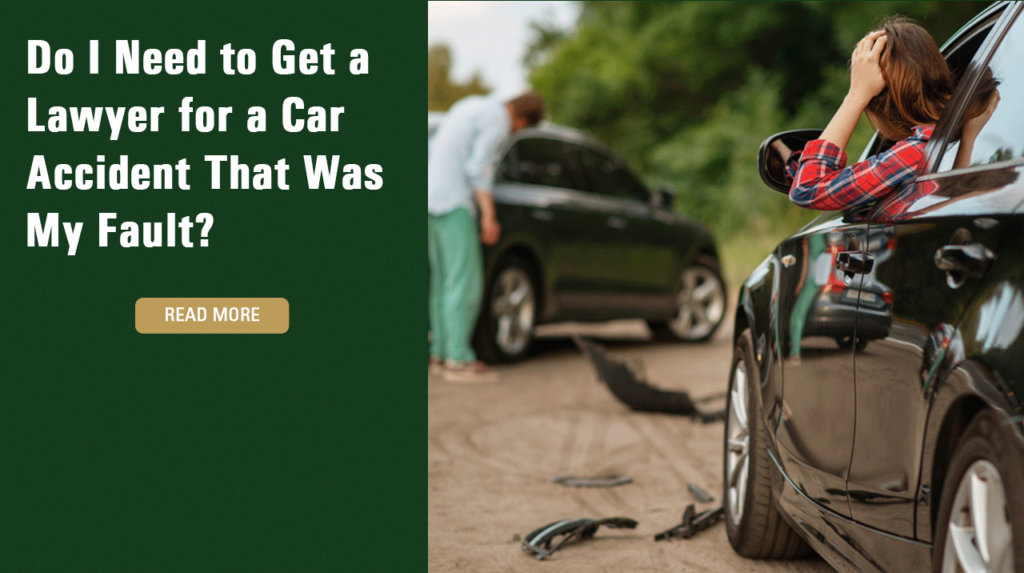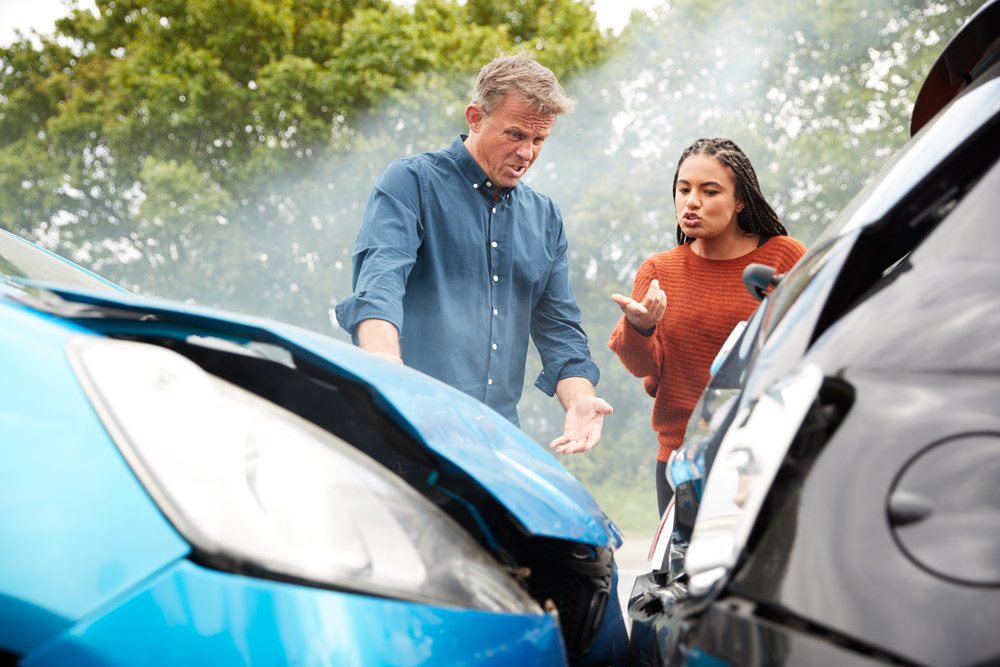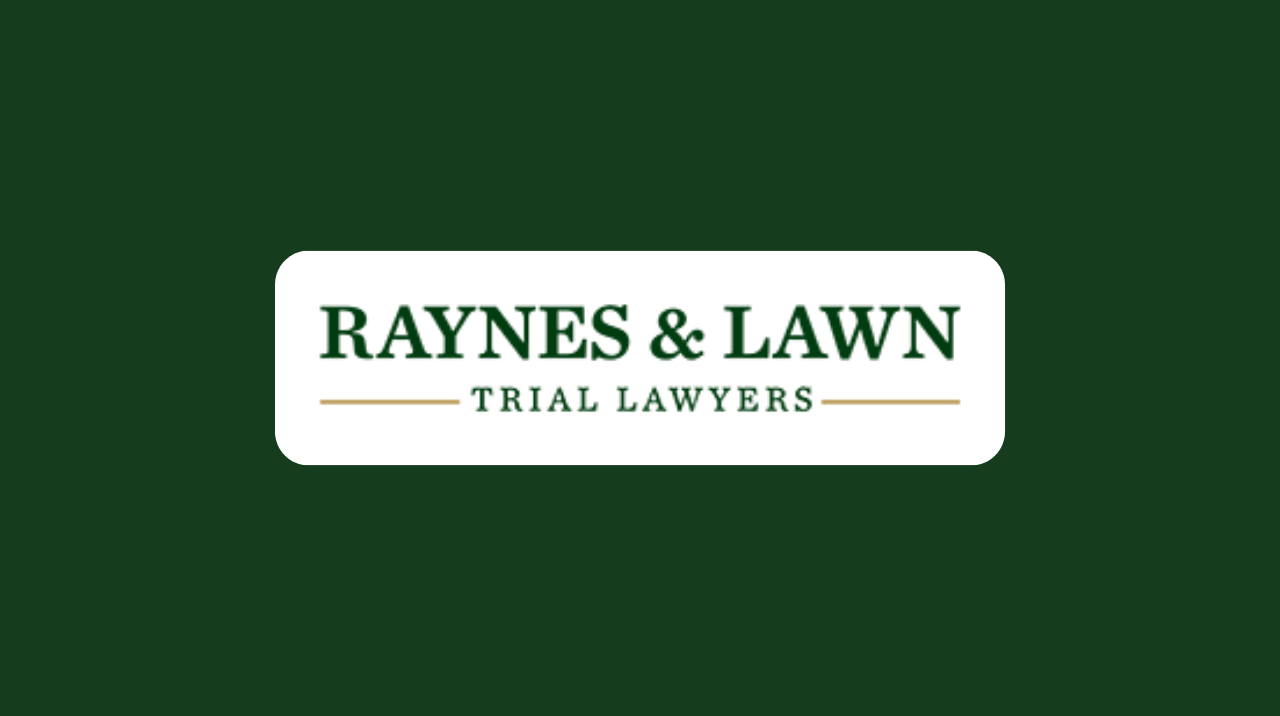Do I Need to Get a Lawyer for a Car Accident That Was My Fault?

Any time you are involved in a car accident in Pennsylvania, it can be difficult to know how to respond. When you believe that you might have been at fault for the collision, it’s important to know how to handle the incident. Reacting in the wrong way following a collision that you think you might have caused can lead to added hassles and additional costs. Consulting a car accident lawyer before you talk to your insurance company and the company of the other involved party might help to mitigate the damages you might otherwise have to pay in a claim filed against you by the other motorist.
How Fault Is Determined in a Car Accident
When the police arrive at an accident scene, they perform an initial investigation to try to decide which driver was at fault and will issue citations if they determine either driver caused the collision. However, the police officer’s determination is not definitive. The involved insurance companies might later step in and investigate to make their own fault determinations.
However, Pennsylvania is a choice of no-fault state for auto accidents. Drivers can choose whether to purchase no-fault or limited tort insurance or elect to purchase full tort coverage.
Limited Tort Insurance and Fault
If the motorists involved in the accident both have limited tort insurance coverage, they will file claims with their respective insurance companies to recover compensation for their medical bills and lost wages. However, they won’t be able to recover damages for their non-economic losses with limited tort coverage.
When only limited tort coverage is involved, it won’t matter whether you were at fault for your accident. Both you and the other driver will file claims with your insurance companies for your out-of-pocket expenses. However, there are exceptions to the general rule that restricts insureds from filing lawsuits for car accidents when they have limited tort coverage. If the victim sustained serious injuries, they might step outside of the limited tort coverage to pursue a claim against the at-fault driver to recover damages.
Full Tort Insurance and Fault
The second choice people can make when purchasing auto insurance in Pennsylvania is full tort coverage. This type of insurance is slightly more expensive than limited tort coverage, but most experts recommend people choose it instead of the cheaper version. Full tort insurance coverage allows accident victims to file lawsuits against the at-fault party to recover compensation for all of their losses, including their non-economic injuries, following a collision. This allows accident victims to recover damages up to the at-fault party’s policy limits. When full tort insurance is involved, the determination of fault is key for determining whether you might be able to recover compensation for the losses you have suffered.
Comparative Negligence in Pennsylvania
Pennsylvania follows a modified comparative negligence rule under 42 Pa.C.S. § 7102. Under this rule, each person who contributes fault to a car accident is responsible for their percentage of fault. However, a car accident victim will only be able to recover compensation when their percentage of fault is equal to or less than the percentage of fault allocated to the other motorist. For example, if you are determined to be 51% responsible, you will not be able to recover compensation.
However, even if you contributed some fault to your accident but were less responsible than the other driver, you will be able to pursue compensation. For example, if you are determined to have been 20% at fault, you will not be barred from recovering compensation in a lawsuit against the other driver. However, your gross verdict will be reduced by 20%. For example, if a jury awarded you $100,000 in this scenario, your net verdict would be reduced to $80,000.
What Should You Do When You Think You Caused a Car Accident?
If you have a collision and think that you caused it, remember that fault for a collision is not determined by the parties involved or the police. Instead, the insurance companies will determine fault by investigating what happened and considering the testimony of witnesses and other evidence.
If you and the other motorist both have limited tort coverage, you will both file claims with your respective insurance companies regardless of fault. However, if either of you suffered serious injuries, the limited tort bar to filing claims might be avoided, allowing a claim to be filed.
Here are some steps to follow when you believe you might have been at fault for a car accident. Even if you don’t think you were at fault, you should still follow these steps to protect yourself.
1. Stay at the Scene and Exchange Information
Don’t leave the scene of a car accident. If you do, the situation could be much worse than it otherwise would be. Leaving the scene of an accident in Pennsylvania is a crime and could subject you to potential imprisonment and stiff fines. Instead, you must stay at the scene and exchange information with the other driver, including your name, contact details, driver’s license information, and insurance information. Make sure to get this same information from the other motorist.
2. Report Your Accident
If anyone was injured in your crash, call 911 immediately to report your accident and request the police. While you are waiting, check for injuries and provide first aid to injured victims until help arrives. If no one appears to be injured, exchange your information with the other driver. You must still report your car accident to the state within five days by using Form AA600 and submitting it to the Pennsylvania Department of Transportation (PennDOT).
If the police respond to your accident scene, they will conduct an on-scene investigation and write an accident report. Ask the officer how to obtain a copy of this report. Make sure to get your copy from the relevant law enforcement agency when it’s ready.
3. Be Careful With What You Say
While you are waiting for the police, don’t say anything that you could regret later. Avoid the urge to apologize for the accident even if you think that you caused it. Don’t admit fault or accept blame. Avoid talking about what you were doing just before the crash or ask the other driver questions to try to figure out whether they made mistakes.
When you are speaking to the police, stick to the facts. Don’t admit fault or blame or apologize. Simply tell the officer what you recall right before, during, and following the crash. If you are asked whether you were injured, don’t say that you were not injured. You could have injuries with delayed symptoms. Instead, you can tell the officer that you want to get examined by a doctor to check for injuries.
4. Take Pictures
Use the camera on your smartphone to take pictures of the scene of your accident. Photograph the damage to each involved vehicle and how they are positioned with each other following the crash. Take pictures of other details that might be important, including such things as tire skid marks, accident debris, road debris, weather conditions, road conditions, nearby traffic lights, stop signs, intersections, and other details.
Take more photographs than you might think are necessary. Photographs at the accident scene can help to determine liability and can provide strong evidence to support your accident claim. Photographs taken immediately following a car wreck can also help to preserve important details that could be lost when the scene is cleaned up.
5. See a Doctor
Following any car crash, it’s important to see a doctor and ask for a medical examination. Even if you think that you aren’t injured, you could have an injury with delayed symptoms.
People’s bodies naturally release adrenaline in a car accident, which is the hormone involved in the natural fight-or-flight response in the face of danger. This adrenaline surge can mask pain signals and make you not realize that you have been injured.
Getting medical attention immediately following an accident can help to determine whether you might have sustained hidden injuries and obtain the treatment you might need quickly. Early treatment might help you to recover faster, and it can also be important evidence that your injuries were caused by your car crash instead of something else. Medical documentation of your injuries is critical for your ability to recover compensation for your losses whether you file a claim with your own insurance company or pursue a claim against the other driver.
6. Report Your Accident to Your Insurance Company
Regardless of whether you have limited tort or full tort insurance, most insurance companies include clauses in their insurance contracts that require the people they insure to report any accidents they are involved in. Make sure to review your policy to see how soon you are required to report it. Most companies allow you to make an initial report online and will contact you after they receive it.
Do You Need an Injury Lawyer After a Car Accident You Think Was Your Fault?
Even if you think that a car accident was your fault, something might have happened that you are not aware of that contributed to the collision. For example, the other motorist might have been texting just before your wreck and failed to react in time to prevent the collision. There also might have been a defective part that failed and led to the collision.
While you might have received a ticket from the responding officer, the police officer’s opinion will not be the definitive determination of fault. Instead, your lawyer and the insurance company will investigate what happened to make independent determinations of fault.
Even if you and the other motorist only have limited tort coverage, having an attorney help you with your claim with your insurance company can be important. Insurance companies are oriented towards making profits and often try to extend unreasonably low offers to claimants. An attorney can help by negotiating with the insurance company to secure a more reasonable claim amount.
An experienced lawyer at Raynes & Lawn can also help to determine the percentage of fault you contributed to the accident and advise you about whether you have grounds to file a claim against the other driver. This can include when you have full tort insurance or even if you have limited tort insurance but have suffered serious injuries. If you were 50% or less at fault, you can recover damages in Pennsylvania.
Lawyers also can help you avoid making mistakes that could limit your ability to pursue a claim and recover compensation. An attorney knows the various tactics insurance companies commonly employ to reduce or avoid claims and can help you combat them. Finally, an attorney who is skilled in negotiating and litigating claims can work to recover the maximum possible claim amount for your losses.
Avoid These Common Mistakes
There are several mistakes people commonly make when they deal with insurance adjusters. Remember that the adjuster who is assigned to your claim works for the insurance company. Consequently, the adjuster has the company’s interests at heart instead of yours. When you are dealing with the insurance adjuster or another insurance company representative, avoid the following mistakes:
1. Giving a Recorded Statement
Insurance adjusters frequently ask people who have been involved in car accidents to agree to give a recorded statement. If the insurance company is the other driver’s insurer, you have no legal obligation to provide a statement of any type about your accident and should instead refer the representative to your lawyer.
Even if the insurance adjuster is from your insurance company, stick to the facts when you talk to them. Do not agree to provide a recorded statement. People who give recorded statements to insurance companies often find that what they say will be used by the companies against them later during the claims process.
2. Signing a Medical Authorization
If you were injured in your accident, you should expect the insurance company to ask you to sign a medical authorization. The company might tell you that it can’t settle your claim until it can verify your injuries and their severity. However, insurance companies typically use signed medical authorizations to pore over an injured victim’s entire medical record. They might do this to blame the injuries on a different event. If you are asked to sign a medical authorization, tell the representative you want to discuss it with your lawyer before you will sign anything. Your attorney can determine the relevant records that should be released to the insurance company and can handle the process for you.
3. Accepting the Initial Offer
Insurance companies sometimes send offers to injured victims that are unreasonably low. The first offer you receive will likely be the lowest the company believes it can offer that you might accept. Insurance companies might also extend lowball offers to try to convince victims that their claims are worth far less than they are. If you accept the first offer you receive, you won’t be able to come back to request more money if you later find that it wasn’t enough to cover your losses.
6. Trying to Settle Your Claim On Your Own
If you were injured, you should never try to handle your accident case on your own. Insurance companies have defense lawyers who are prepared to defend against injury claims. If you try to handle the claims process without help, you will be on unequal footing with the insurance company. Retaining an injury lawyer to handle your claim can allow you to attend to your recovery process while the attorney works on your claim for you. People who retain injury lawyers frequently recover much more compensation than those who try to handle it themselves.
When Might Hiring an Attorney Be Unnecessary?
If your accident only involved property damage and was relatively minor, you likely will not need the help of a lawyer. You should be able to work out the details of a property damage-only claim with your insurance company on your own. Make sure to promptly report your accident and follow through with getting repair estimates.
If you were not injured, and the other motorist files a lawsuit against you, you might also not have to hire a lawyer. This is because your insurance company should defend you against the claim and provide a defense attorney to handle it on both your behalf and the insurance company’s behalf.
Consultations With Car Accident Lawyers Are Free
Most injury lawyers offer free consultations. This means that you can speak to an attorney about your accident without having to pay any money. Even if you think that you might have been at fault, meeting with an injury lawyer can help you understand your options and whether you might have grounds to file a claim. A lawyer can also talk to you about any settlement offers you have received from the insurance company and explain your rights under the law.
If an attorney agrees to accept representation of you in your case, most injury lawyers also work on a contingent-fee basis. This means that the lawyer will only be paid if and when they recover compensation for you. Because of this type of fee structure, concerns about affording a lawyer are not relevant when you are thinking about talking to a car accident lawyer.
Consult a Lawyer at Raynes & Lawn
The aftermath of a collision can be difficult to manage for anyone. If you suffered injuries, it can feel overwhelming to have to deal with insurance companies and the claims process. Even if you think you might have caused your collision, it’s possible that some other factors might have led to it.
Speaking with an experienced car accident lawyer at Raynes & Lawn is free. We offer free case evaluations and can assess your potential claim. We have more than 50 years of experience helping car accident victims recover fair compensation for their losses and are prepared to help. Contact us today to schedule a free consultation and learn more about your next steps by calling us at 1-800-535-1797.
For the general public: This Blog/Website is made available by the law firm publisher, Raynes & Lawn, for educational purposes. It provides general information and a general understanding of the law but does not provide specific legal advice. By using this site, commenting on posts, or sending inquiries through the site or contact email, you confirm that there is no attorney-client relationship between you and the Blog/Website publisher. The Blog/Website should not be used as a substitute for competent legal advice from a licensed attorney in your jurisdiction.
For attorneys: This Blog/Website is informational in nature and is not a substitute for legal research or a consultation on specific matters pertaining to your clients. Due to the dynamic nature of legal doctrines, what might be accurate one day may be inaccurate the next. As such, the contents of this blog must not be relied upon as a basis for arguments to a court or for your advice to clients without, again, further research or a consultation with our professionals.



